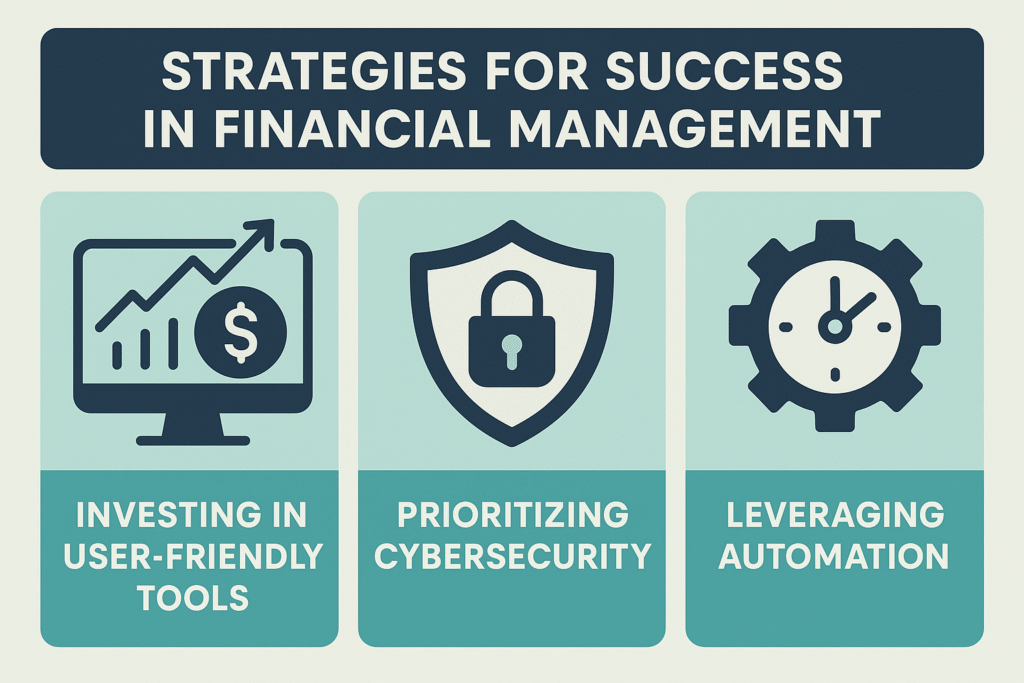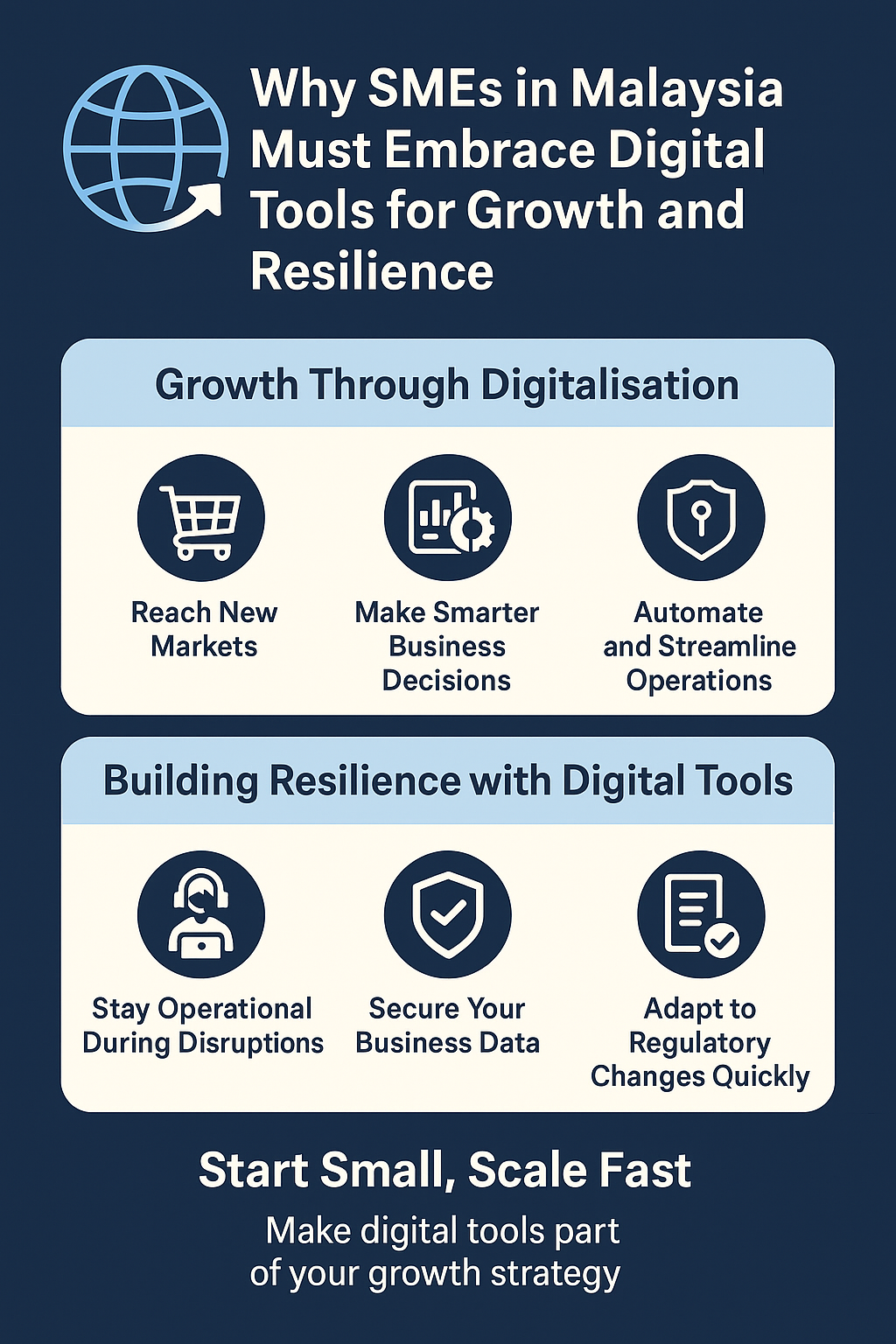This post is also available in:
Bahasa Malaysia
In recent years, the pace of technological innovation has accelerated at an unprecedented rate, disrupting industries and transforming the way businesses operate.
For small businesses, this rapid evolution is particularly significant in how they manage their finances.
Understanding and adapting to these changes is essential for their survival and growth.

Opportunities for Financial Management in Small Businesses
- Streamlined Bookkeeping and Accounting: Advanced technologies such as cloud-based accounting software, like Bukku, QuickBooks Online and Xero, allow small businesses to automate bookkeeping tasks, track expenses, and generate financial reports in real-time. This reduces manual errors and saves valuable time.
- Improved Cash Flow Management: Digital tools now provide small businesses with real-time insights into cash flow. Platforms can send alerts for overdue invoices, forecast future cash needs, and automate payment reminders, helping businesses maintain financial stability.
- Access to Financing: Technology has made it easier for small businesses to secure funding. Online lending platforms and crowdfunding websites provide alternative financing options, while AI-driven credit assessment tools speed up loan approval processes.
- Data-Driven Decision Making: Financial analytics tools empower small businesses to make informed decisions. By analyzing revenue trends, expense patterns, and profitability metrics, businesses can better plan budgets and allocate resources effectively.
Challenges Facing Financial Management in Small Businesses
- Adopting New Financial Tools: Keeping up with the rapid development of financial technology can be overwhelming. Small business owners may lack the expertise to evaluate and implement the right tools for their needs.
- Cybersecurity Risks: As financial operations become increasingly digital, the risk of data breaches and fraud grows. Protecting sensitive financial data requires robust security measures, which can be costly and complex to implement.
- Integration with Existing Systems: Many small businesses face challenges in integrating new financial tools with legacy systems. Ensuring compatibility and seamless data transfer often requires technical expertise.
- Cost of Implementation: While many financial tools are cost-effective in the long run, the initial investment in software, training, and support can be a barrier for small businesses.
Strategies for Success in Financial Management

To navigate the challenges and seize the opportunities presented by technological change, small businesses should consider the following strategies for managing their finances:
- Invest in User-Friendly Tools: Opt for financial management platforms that are designed with small businesses in mind. Look for intuitive interfaces, clear pricing structures, and strong customer support.
- Prioritize Cybersecurity: Protect financial data by implementing strong security measures, such as two-factor authentication, encrypted transactions, and regular software updates. Educate employees on best practices to prevent fraud.
- Leverage Automation: Automate repetitive financial tasks such as invoicing, payroll, and tax filing. This not only saves time but also reduces errors and ensures compliance with regulations.
- Seek Professional Advice: Engage with financial advisors or consultants who specialize in small businesses. They can help identify the best tools and strategies for managing finances in a rapidly changing environment.
- Monitor and Adapt: Regularly review financial tools and processes to ensure they align with the business’s evolving needs. Stay informed about emerging technologies that could further streamline financial management.
Conclusion
The unprecedented pace of technological change is reshaping how small businesses manage their finances.
By embracing modern financial tools, prioritizing security, and leveraging data-driven insights, small businesses can enhance their financial operations and position themselves for long-term success.
Technology is no longer just an operational convenience—it is a fundamental enabler of financial resilience and growth in the modern business landscape.

Digital Economy Framework Agreement
With the rise of the Digital Economy Framework Agreement (DEFA), the government is paving the way for a more connected, innovative, and competitive digital economy across ASEAN. What is DEFA and how does it directly impact – and benefit – small businesses, especially those ready to adopt cloud-based accounting and payroll systems.

Why SMEs in Malaysia Must Embrace Digital Tools for Growth and Resilience
In today’s fast-changing business environment, small and medium-sized enterprises (SMEs) in Malaysia face growing pressure to stay competitive, efficient, and adaptable. The COVID-19 pandemic, global supply chain disruptions, and rising customer expectations have all shown one thing clearly: businesses that embrace digital tools are more resilient and better positioned for growth.